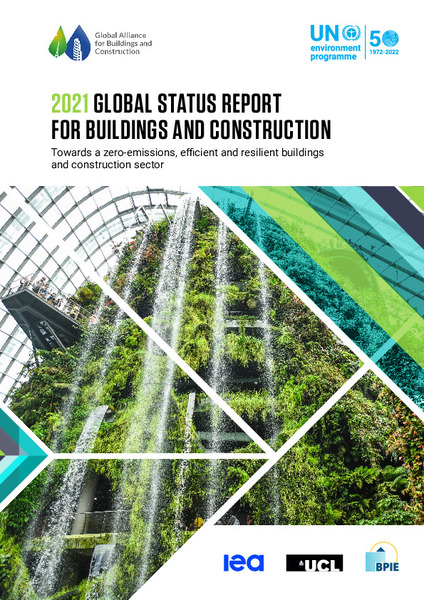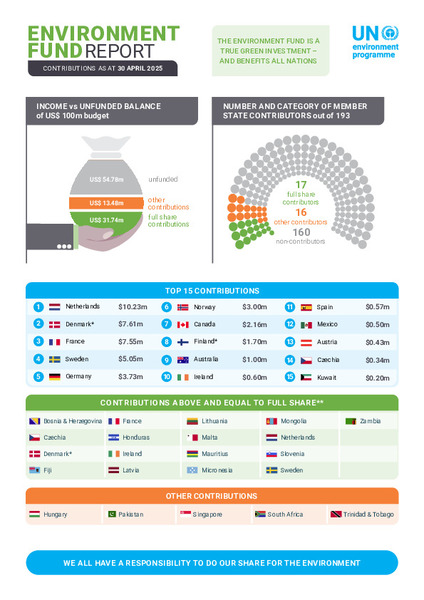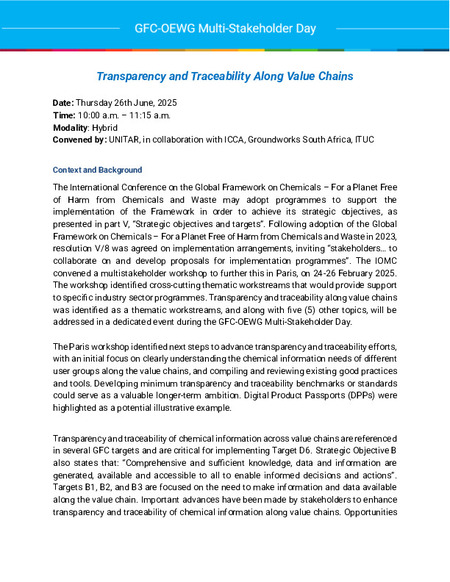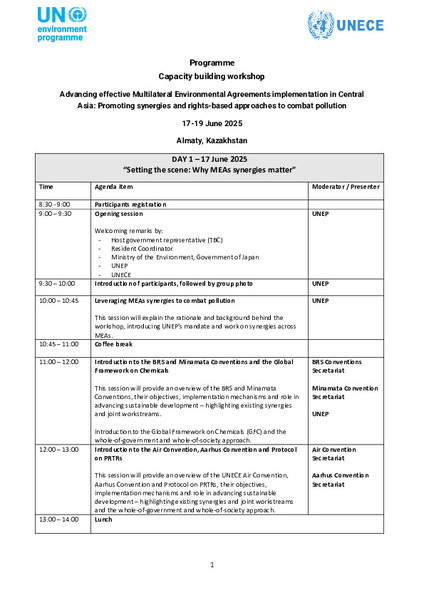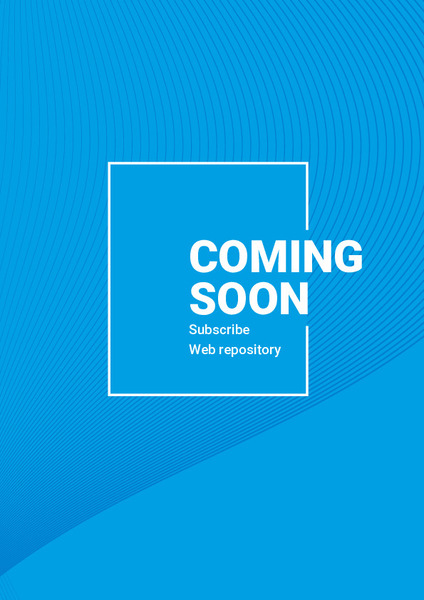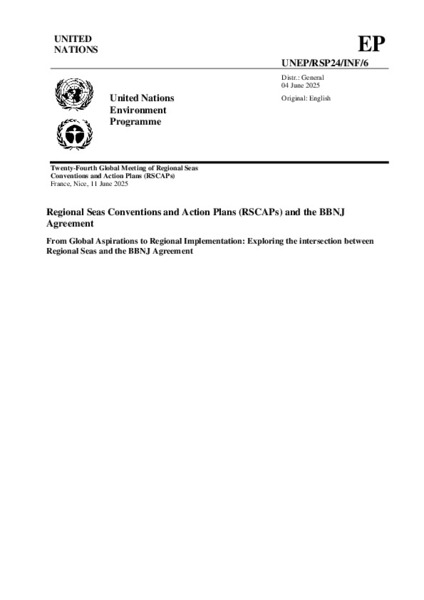The UNEP knowledge repository digitally captures, stores, indexes, and disseminates UNEP’s collective intellectual and research output including...
flagships, technical reports, policy briefs and more.
The objectives of the Knowledge Repository are to:
- Increase the visibility of UNEP publications for easy access and reuse;
- Ensure the long-term preservation of UNEP intellectual and research output; and
- Support the 2030 Sustainable Development Agenda by providing Member States access to relevant knowledge to influence policy at national, regional and global levels.
The UNEP Knowledge Repository provides a single point of access to more than 11,000 digital publications.
Collections in the Knowledge Repository
- Educational Materials
- Flagship Reports
- Institutional Series
- Non-technical Handbooks, Guidelines, Manuals, Toolkits
- Policy Briefs
- Project Reports
- Serial Publications
- Spotlight Reports
- Statistical Compilations
- Teaching Materials
- Technical Guidelines or Manuals
- Technical Reports
- Working Papers
- Yearbooks, annual and biennial reports
- Briefs, Summaries, Policies and Strategies
- Chapters and Articles
- Discussion Papers, Concepts and Proposals
- Factsheets, Infographics and Brochures
- Global Environment Outlook Reports
- Legal Instruments
- Manuals, Guides and Toolkits
- Meeting Documents
- News, Stories and Press Releases
- Programme Documents
- Reports, Books and Booklets
- Serials
- Summaries
Knowledge Repository
Sub-communities within this community
Collections in this community
-
Generic Documents
(Temporary Collection Area for Website Documents Only) -
Meeting Documents
(Official collection of Meeting Documents to be displayed to the public) -
Publications and Documents
(Official collection of documents displayed in the UN Environment Publications page)
What's New?
-
-
Sustainable Procurement Guidelines for Data Centres and Servers - Key Messages
(2025-06)The number of data centres is rapidly increasing, driven by economic growth, the surge in data demand—particularly from edge computing (where data is processed closer to users via smart devices)—and the rise of as artificial ... -
2021 Global Status Report for Buildings and Construction: Towards a Zero‑emission, Efficient and Resilient Buildings and Construction Sector - Executive Summary
(United Nations Environment Programme, 2021)Since the signing of the Paris Agreement in 2015, CO2 emissions from the buildings and construction sector have peaked in recent years and subsequently fallen to 2007 levels in 2020. This current decline is due mostly to ... -
2021 Global Status Report for Buildings and Construction: Towards a Zero‑emission, Efficient and Resilient Buildings and Construction Sector
(United Nations Environment Programme, 2021)Since the signing of the Paris Agreement in 2015, CO2 emissions from the buildings and construction sector have peaked in recent years and subsequently fallen to 2007 levels in 2020. This current decline is due mostly to ... -
Factsheets on Multilateral Environmental Agreements and other international frameworks as Background note to UNEP capacity building workshop
(2025-05)These are Factsheets on MEAs and other international frameworks as background notes ahead of the Capacity Building Workshop on Advancing Effective MEA Implementation in Central Asia: Promoting Synergies and Rights-Based ... -
Environment Fund Report - Contributions as at 30 April 2025
(2025-04)Monthly Environment Fund Infographics overview report for the month ending April 30th 2025. -
UN Environment Programme Environment Fund Table Report as at 30 April 2025
(2025-04)Environment Fund Report overview of contributions as at 30 April 2025. -
Transparency and Traceability Along Value Chains
(2025-06)This event aims to increase knowledge and stakeholder commitment on Transparency and traceability along value chains as a cross-cutting thematic area relevant for strengthening industry action -
Workshop Report - Southern Africa Regional Workshop on Wastewater Surveillance for Environmental and Public Health
(2025-04)The workshop was held under the auspices of the "Wastewater Surveillance for Africa Initiative (WWS)" of the United Nations Environment Program (UNEP) and supported by the European Union’s (EU) Health Emergency Preparedness ... -
Junior Professional Officer (Associate Programme Officer - Air Quality: [Job Vacancy Announcement] - United Nations Environment Programme
(2025-06)Title: Associate Programme Officer (Air Quality) Office/Division/MEA: Asia and the Pacific Office Unit: Chemicals and Pollution Action Sub-Programme Location: Bangkok, Thailand Duration: 2 years, with the possibility ... -
Collaborative Action Framework on Nutrients Management
(2024-01)To establish a collaborative framework on nutrients management, covering the progressive reduction of impacts from excess nutrient emissions on marine and coastal ecosystems of the seas of East Asia. -
Programme Capacity building workshop - Advancing effective Multilateral Environmental Agreements implementation in Central Asia: Promoting synergies and rights-based approaches to combat pollution
(2025-06)This is a Draft Programme for the Advancing effective MEA implementation in Central Asia: Promoting synergies and rights-based approaches to combat pollution Workshop that will be held in Almaty, Kazakhstan. -
Regional Seas Programme-related UN resolutions
(2025-06)Regional Seas Programme-related UN resolutions -
Financing the Responsible Supply of Energy Transition Minerals for Sustainable Development [Coming Soon]
(2025-06)The finance sector can play a critical role in promoting responsible mining, particularly in the context of the rising demand for energy transition minerals such as lithium, cobalt, and rare earth elements. These minerals ... -
Sustainable Procurement Guidelines for Data Centres and Servers
(2025-06)Data centres in developing countries are set to grow rapidly due to economic expansion, rising data demand and increasing data sovereignty needs. However, these facilities are highly energy-intensive. Despite efficiency ... -
The Great Gobi National Park: a Refuge for Rare Animals of the Central Asian Deserts
(1986)This book describes how the reserve was created and discusses the problems encountered in protecting the unique wildlife of the Gobi Desert. The authors participated personally in the implementation of this international ... -
Regional Seas Conventions and Action Plans (RSCAPs) and the BBNJ Agreement - From Global Aspirations to Regional Implementation: Exploring the intersection between Regional Seas and the BBNJ Agreement
(2025-05)The policy brief is aimed at informing representatives of RSCAP Member States and other decision makers about opportunities for cooperation and possible complementary benefits of ratification. The review focuses on the ... -
Report of the Fourteenth Conference of the Contracting Parties (cop14) to the Abidjan Convention
(2025-05)The fourteenth Conference of the Contracting Parties (COP14) to the Convention for Cooperation in the Protection, Management and Development of the Marine Environment and Coastal Areas of the Atlantic Coast of West, Central ... -
COP14 Decisions
(2025-05)The fourteenth Conference of the Contracting Parties (COP14) to the Convention for Cooperation in the Protection, Management and Development of the Marine Environment and Coastal Areas of the Atlantic Coast of West, Central ... -
Land Use Finance Impact Hub - Country Factsheet: Investor guide to environmental and social opportunities and risks - Lower Mekong Region
(2025-06)The Lower Mekong Region fact sheet is the third in a series, following Indonesia and Brazil. It summarises the environmental and social challenges and opportunities associated with investing in the sustainable land use ...





